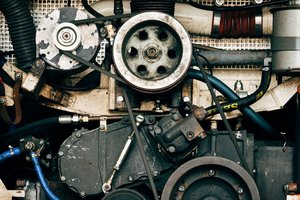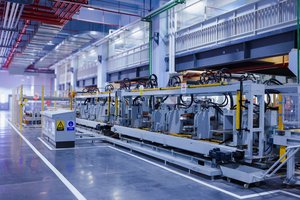🔧 Challenges in CNC Turning (0 to 1)
Moving from manual or rudimentary CNC operations to high-precision turning involves several hurdles. Let’s break down the most common obstacles manufacturers face:
1. Material Variability and Workpiece Integrity
- Different metals (aluminum, steel, titanium) behave uniquely under cutting forces.
- Key issue: Inconsistent material hardness or grain structure can lead to tool deflection or premature wear.
2. Tool Selection and Wear Management
- Choosing the wrong insert geometry or coating reduces efficiency.
- Impact: Frequent tool changes increase downtime and costs.
3. Precision and Tolerance Control
- Holding tight tolerances (±0.001″ or less) demands meticulous calibration.
- Challenge: Thermal expansion, vibration, and machine rigidity affect repeatability.
4. Programming and Workflow Optimization
- Poorly optimized G-code leads to inefficient tool paths.
- Result: Longer cycle times and higher energy consumption.
✅ Solutions for Seamless CNC Turning (0 to 1)
📌 Addressing Material Variability
- Pre-machine testing: Conduct hardness and stress-relief checks on raw stock.
- Adaptive toolpaths: Use CAM software with dynamic milling to adjust for material inconsistencies.
📌 Optimizing Tool Performance
| Factor | Best Practice |
|---|---|
| Tool Coating | TiAlN for high-heat materials, DLC for non-ferrous |
| Insert Geometry | Positive rake for softer metals, negative for heavy cuts |
| Wear Monitoring | Implement IoT-enabled sensors for real-time tracking |
| ### 📌 Achieving Ultra-Tight Tolerances | |
| – Machine calibration: Regular laser alignment checks. | |
| – Coolant strategy: High-pressure coolant minimizes thermal distortion. | |
| – Vibration damping: Use tuned mass dampers for high-RPM operations. | |
 |
|
| ### 📌 Streamlining Programming & Production | |
| – Simulation-first approach: Verify toolpaths in virtual environments. | |
| – Lights-out machining: Automate batch runs with robotic part loaders. | |
 |
|
| — | |
| ## 📊 Real-World Applications & Case Studies | |
| ### Case 1: Aerospace Component Manufacturer | |
| – Challenge: Needed ±0.0005″ tolerances on titanium landing gear parts. | |
| – Solution: Switched to ceramic inserts with high-pressure coolant, reducing tool wear by 40%. | |
| ### Case 2: Automotive Supplier | |
| – Issue: Excessive scrap rates due to chatter in aluminum housings. | |
| – Fix: Implemented adaptive toolpaths, cutting cycle times by 25% and improving surface finish. | |
| — | |
| ## 🚀 Best Practices for Long-Term Success | |
| 1. Start with prototyping – Test small batches before full production. | |
| 2. Invest in training – Ensure operators understand advanced CAM features. | |
| 3. Leverage data analytics – Track tool life, machine health, and efficiency trends. | |
| 4. Collaborate with suppliers – Work closely with material and tooling vendors for tailored solutions. | |
| — | |
| ## 🔮 The Future of CNC Turning (0 to 1 and Beyond) | |
| Emerging technologies like AI-driven predictive maintenance and hybrid additive-subtractive systems are reshaping precision turning. Manufacturers who master these fundamentals today will lead tomorrow’s high-efficiency, low-waste production lines. | |
| Ready to elevate your CNC turning? Partner with experts who understand the journey from zero to one—and beyond. |
